Why mothers?
07.09.23
MMM Network Coordinator Sarah Krimi has been talking to many of our grass roots members, to get to know them better and to understand why mothers matter to their work. As Benoît Bichon, President & Founder of EDO Group in Colombia, says in his interview: “We're convinced that mothers are the transformative agents of society.”
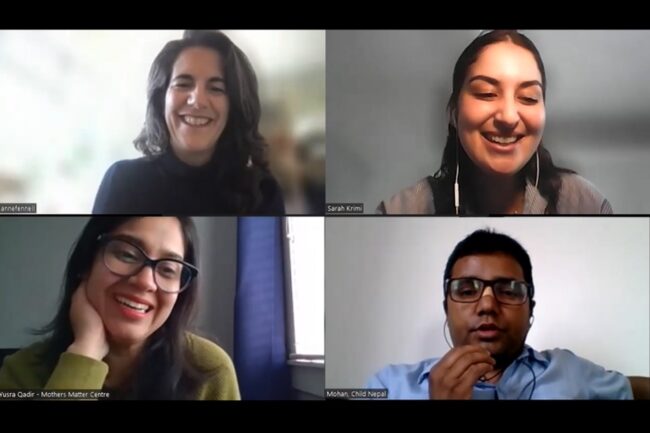
Our Network’s collective commitment addresses multiple and urgent issues facing mothers around the world, including food security, poverty, climate change, health, armed conflicts, work-life imbalances, etc. It enables us to continue our advocacy on their behalf and for their benefit.
We are proud to highlight the diverse actions of some of our members, through their own narrative, in empowering mothers to bring about positive change.
Alain Englebert, President of En Avant Les Enfants (EALE), Belgium/Democratic Republic of Congo
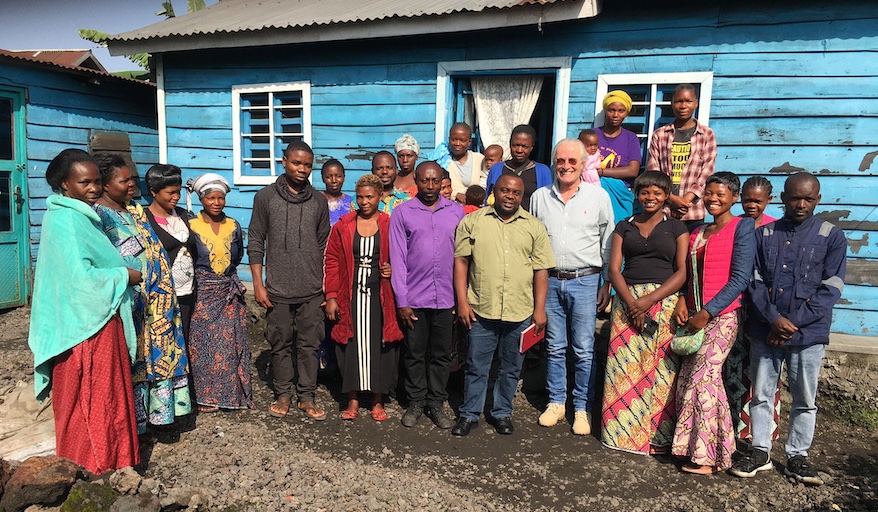
I realized that mothers have a plural responsibility – totally unrecognized, undervalued, and undefended – namely their educational responsibility.
But also, that today many mothers wish or are obliged to work and are therefore major economic contributors. Mothers are often the foundation of change and therefore key players in society. At En Avant Les Enfants, our main strategic objective is to empower our beneficiaries, that is mothers and their children. To ensure that they can be totally autonomous in terms of education, training and, above all, in economic terms, to allow them to become responsible citizens, i.e. actors for peace. Through our Kisany social project, we are achieving this goal and empowering mothers. When they leave our project, the mothers, having acquired skills in embroidery in particular, can develop an income-generating activity in their own homes.
In all these battles, it’s very important to raise awareness amongst men and fathers, both current and future, of what we now call positive masculinity. It is a battle that needs to be fought in a deep and wide-ranging way, because it’s a battle that is often overlooked.
Anne Fennell, Chair of Mothers At Home Matter (MAHM), United Kingdom
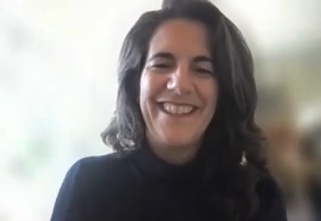 We are afraid to talk about mothers these days. It has become like it is old fashioned and stuck in the past whereas we want to be progressive.
We are afraid to talk about mothers these days. It has become like it is old fashioned and stuck in the past whereas we want to be progressive.
But I think it’s quite radical to say that we are mothers and we want to have the choice to be at home with our children.
There is no other organisation doing that. There are a lot of organisations for fathers, quite a few here in the UK, and many others supporting mums to go back to work, but there is none, that I know of, that supports the desire to be at home. It is like swimming upstream and I think there’s the need to be a voice.
The greatest challenge is to change perceptions and to educate and to get people to understand what the situation is for families. Our main goal at MAHM today is to advocate for a fair taxation policy, to make child benefit fair and to advocate for an economic level playing field so parents have a real choice. And actually, for the money to follow the child.
Claire Thibaut, President of Mothers & Midwives Support (MMS), Belgium/Democratic Republic of Congo
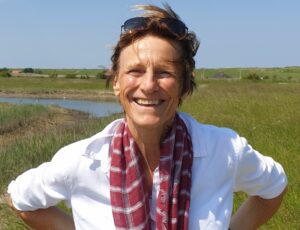 As a nurse and midwife, it was only natural that I would support mothers.
As a nurse and midwife, it was only natural that I would support mothers.
For me, the African adage “if it weren’t for women, the world would fall apart” epitomizes the importance of women and mothers in our society.
It was with these convictions that I created MMS. In the beginning, my mission was to train midwives, but I soon realized that without the right infrastructure, it’s very difficult to provide training. So today my main objective is to finalize the building work on all our maternity centers. We’ve created a wonderful partnership with a French association, Energie Assistance, which will help us to bring electricity to our 22 health centers. Midwife training also remains a flagship project for the coming year. It’s important for the midwives to be able to provide mothers with the support they need, because women are the rallying and driving force behind development.
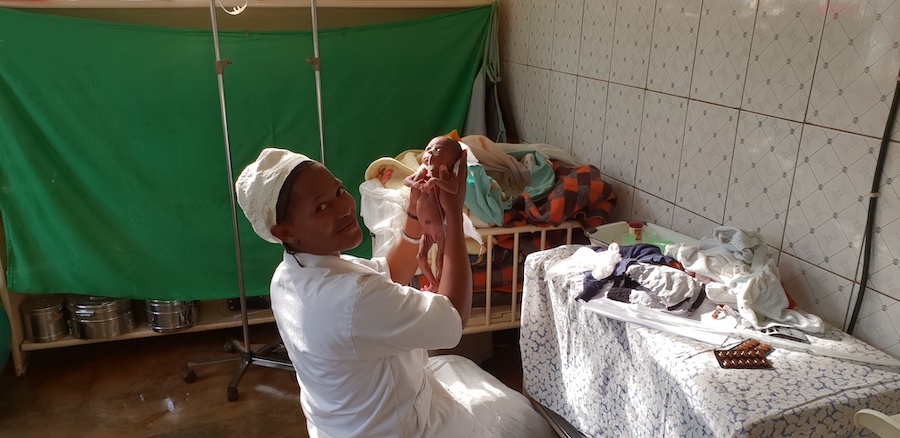
Benoît Bichon, President & Founder of EDO Group, Colombia
We’re convinced that mothers are the transformative agents of society.
This is why we work not only with mothers, but also with the Afro and Wayuu communities in Guajira, Colombia, so that they are recognized and supported as such. Our region is multicultural and very complex, and we want to try and bring about change for these women, for these mothers. Our aim is to succeed in financing food security for them, operational health, adapted education, work on micro-entrepreneurship and micro-finance. Our flagship projects for the coming year are first the setting up of a small social enterprise to provide raw materials for weaving and a distribution and marketing system for finished products to respond to a market; and second a health prevention project with first aid to raise awareness of hygiene conditions.
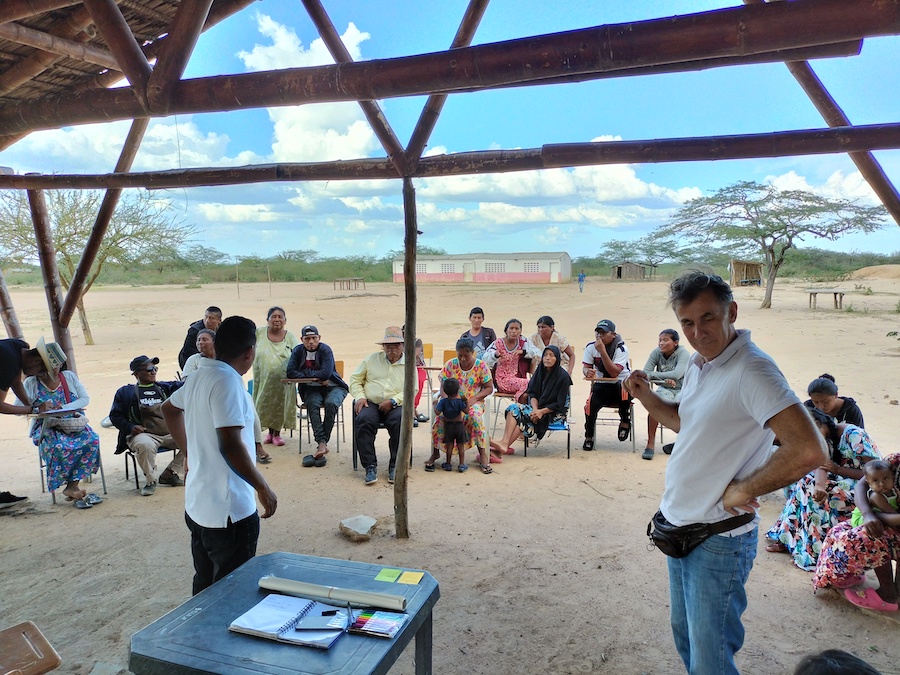
Camila Rodrigues, President & Founder of Mulheres a Obra, Portugal
Our community was created from a discussion about work-life balance that resulted from a publication that was posted in a Facebook group for mothers, called 4Moms.
One mother posted that she was finding it difficult to reconcile family and work, and she asked if other mothers were feeling the same. Replies flooded in. So, I and another mother, Carla, started to exchange private messages and decided that it would be better to create a forum for those women to talk with each other. It began with 5 000 women and now we are almost 200 000!
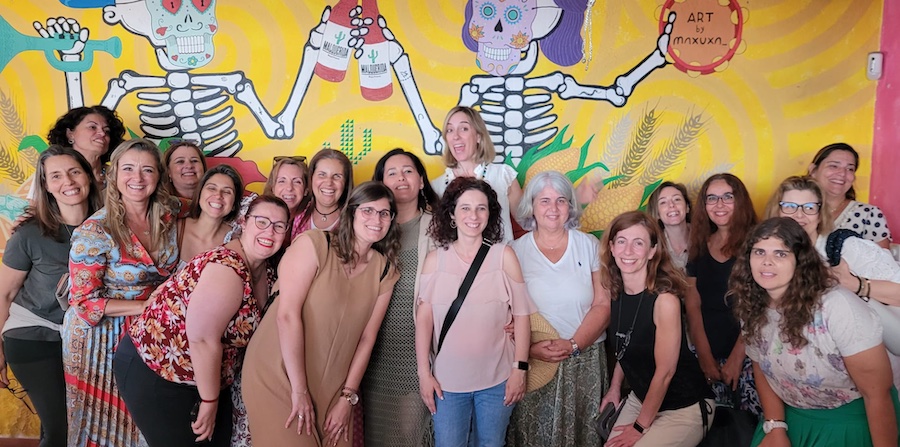
My greatest challenge is to bring about more ambitious policies in support of solopreneurs, both nationally and at the EU level. Solopreneurs need to be recognized as a subset of entrepreneurship with their own value as economic agents and proper recognition in official statistics. Women solopreneurs – ‘Mom’preneurs’ – have their own specificities that must also be acknowledged.
Caroline Piret, President & Founder, Viallaite, Cameroun
It was very important for me to be able to advise and raise awareness amongst mothers who find themselves in enormous difficulties with their babies when it comes to breastfeeding. A child’s diet between 0 and 2 years of age plays a major role in his or her growth and development. We try to build mothers’ education around breastfeeding, while respecting each person’s culture and beliefs.
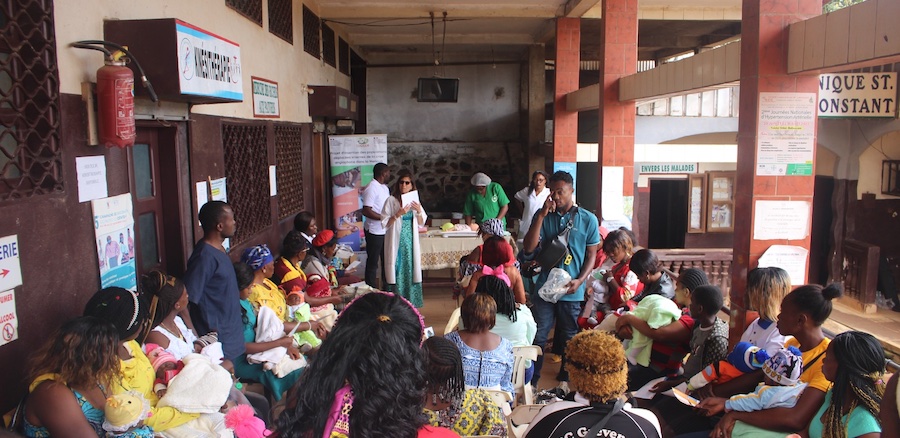
When we are able to help a mother, our advice not only calms the baby and therefore the mother, but it also helps build their mutual relationship and secures the mother’s approach to breastfeeding. To this end, we are very active on our Facebook page, as well as on the mothers’ groups on this platform. We have also set up a training program for nursing staff in several hospitals, as they are the first to be able to inform these mothers. Giving healthcare staff the tools they need to help mothers in practical terms is crucial.
Jean Bolly, President & Founder of AJAD, Côte d’Ivoire
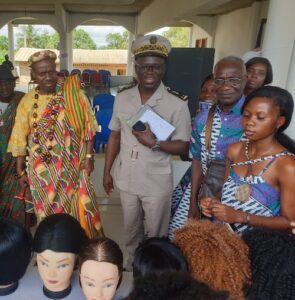 My mother was the catalyst for my involvement with mothers in Côte d’Ivoire. She used to climb up palm trees to pick the seeds and sell them so that I could go to school. She helped me understand the difficult scenarios women, particularly African women, face.
My mother was the catalyst for my involvement with mothers in Côte d’Ivoire. She used to climb up palm trees to pick the seeds and sell them so that I could go to school. She helped me understand the difficult scenarios women, particularly African women, face.
I find that the situation of these women, these mothers, is stereotyped and much judged, and my job is precisely to deconstruct these stereotypes and prejudices.
Through AJAD, I hope to restore women’s dignity. To do this, we have set up a training center for young girls, where they learn hairdressing, sewing, pastry-making and decorating, with the aim of giving them a diploma. This diploma will enable them to open their own business and thus become autonomous. AJAD’s objective is the social empowerment of women.
Mohan Dangal, Executive Director of Child Nepal, Nepal
Let us train mothers but also learn from them. In Nepal, we are advocating for the ratification of the third optional protocol of the UN Convention on the rights of the child. Nepal has not yet ratified it, so we continue our efforts as we have been doing since 2012. It remains our greatest challenge today.
Our mission is to initiate a child friendly culture. It is a very big mission, and a big objective for us.
It is impossible to initiate a child friendly culture without mothers being empowered.
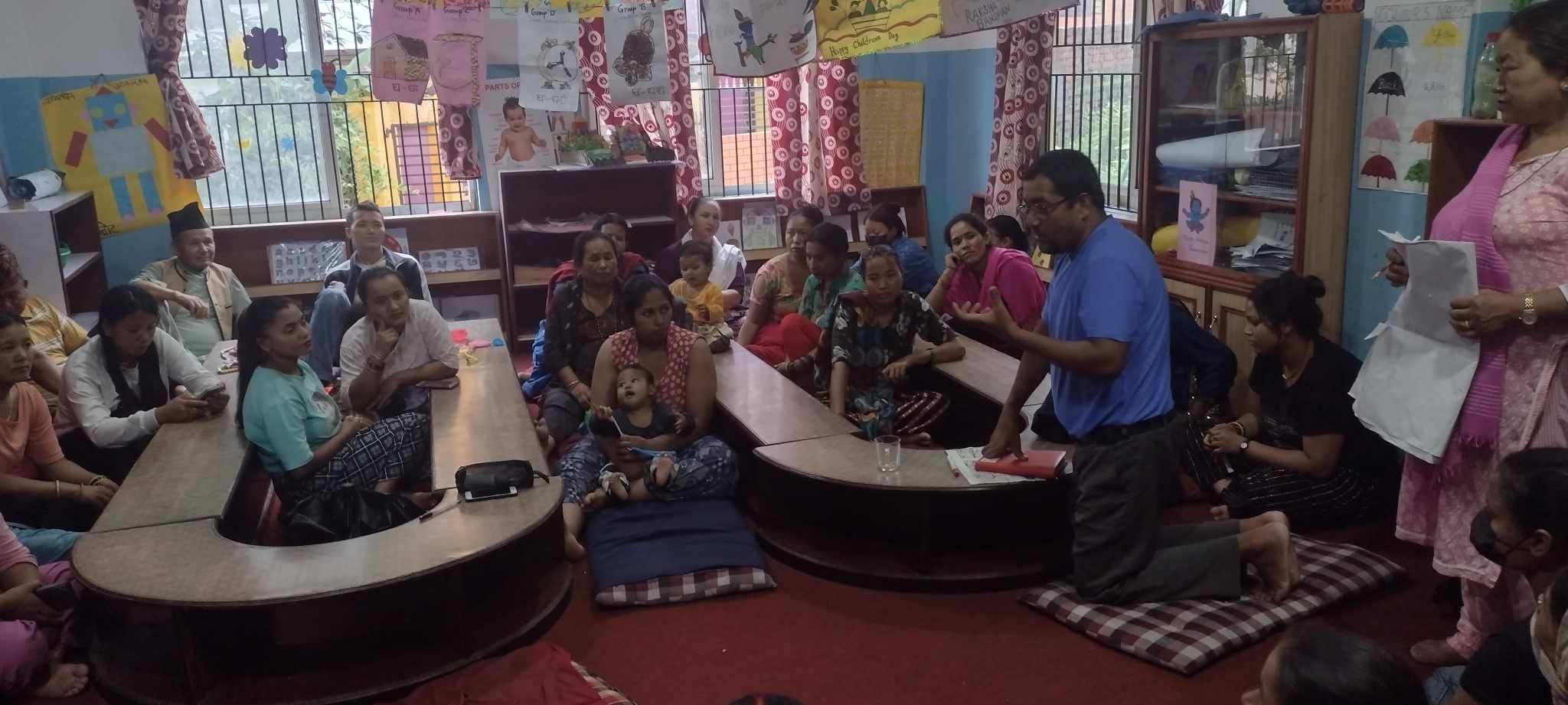
Runa Khan, President and Founder, Friendship NGO, Bangladesh
Being a mother is one of the biggest responsibilities one can have. Motherhood comes the day you get pregnant. In this world we need every single element of positivity for our kids because you never do it right. Nobody can do it perfectly. We have to do our best and give mothers the best chance of bringing up their children, being with them as much as possible. And children have to understand that people need to work, that is also part of growing up; they will do it in turn for their children. We need to work for our living and bring them up safely. We have to give all the tools to mothers to bring up the generation they are responsible for.
People need to understand the value of women’s lives because it is they, at the end of the day, who are responsible for the world to come. They are the true vessel of the world of tomorrow.
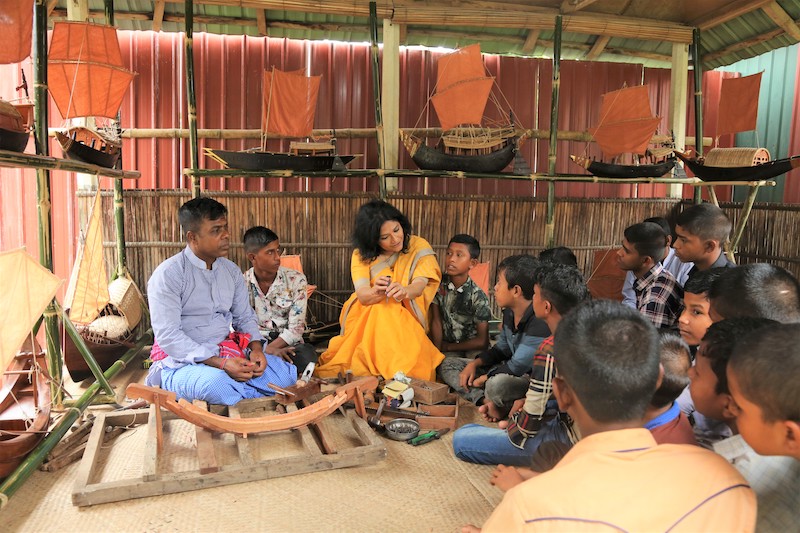
At Friendship, we have learner groups to educate people about local laws, about advocating against child marriages, about small things like birth certificates, national IDs, or how to report a police complaint. 75% of them are women. Currently we have 40 000 adult learners, of whom at least 30 000 are women.
Passy Mubalama, Founder & Executive Director of Aidprofen, Democratic Republic of Congo
My mother was a concrete example of what I didn’t want to see any more in Congo, i.e. women who are victims of social norms and who only look after their homes, their husbands and their children, forgetting themselves as women. The situation of mothers in DRC is very unique, and I want to combat the clichés that surround them by showing the other side of the coin: their courage, their work, their battles that contribute every day to the development of the country.
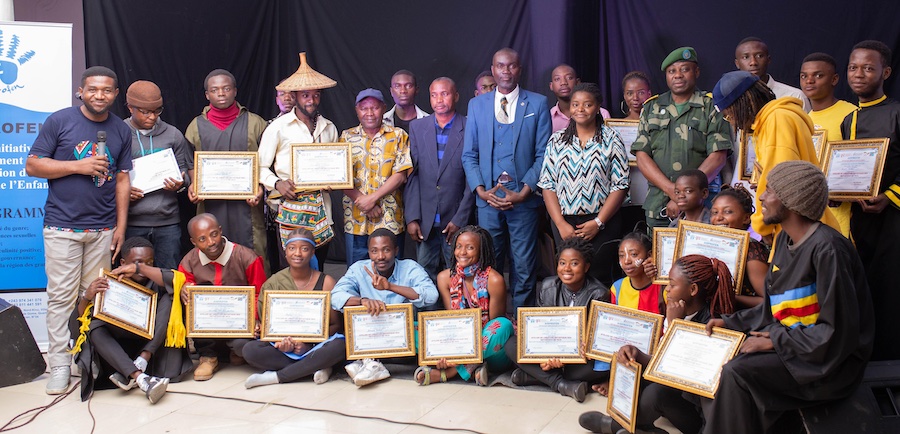
Mothers have the ability to perpetuate the education they have received. That’s why Aidprofen, by focusing on mothers and helping them to regain their rights, hopes to change the inequality between men and women in future generations. To do this, we are fighting gender-based violence and reducing inequalities by developing activities in displaced persons camps, where we also provide psycho-social care for women survivors of violence, medical referrals and leadership activities but also setting up activities on positive masculinity. I’m part of a generation that hasn’t known peace in the Congo, and through my work I hope to change this situation for future generations. My big fight today is for equality between men and women to be recognised as a right, not a favour.
Yusra Qadir , Vice President, Mothers Matter Center Canada
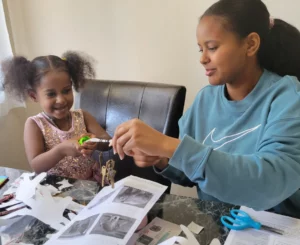
We don’t do superficial programming; most of our projects last between 2 and 3 years. Our core programme, Home Instruction for Parents of Preschool Youngsters (HIPPY) is based on home visitation – our home visitor goes into the home of the mother and spends an hour delivering an activity curriculum to her each week, to enable her to engage her child in activities. Right now, in Canada, there are 40 HIPPY programmes serving 16 000 women each year. We also have other projects such as the Woman’s insight project, which enables women to identify SDG gaps in their communities. We work with three groups: indigenous women, Muslim women and refugee and immigrant women.
When we work with the mother, we feel the home environment changes. Not only is she able to work with one child but with all her children. When her confidence and capacity develop, the situation improves and transforms things for the whole family.
We don’t see the mother only as a vehicle of change. That would not be fair: she is also an individual, she has her own rights. In everything we do, she has to benefit, and then everybody else will benefit too.
We will continue to highlight the work of our members with other features coming soon.
You can access information about the work of all our associate members within our Network here.
The New EU Gender Equality Roadmap : A Call for Inclusion of Mothers
04.03.25
The European Commission’s initiative on a new Gender Equality Roadmap post-2025, marks a significant step forward in addressing gender disparities across the European Union. Make Mothers Matter (MMM
Breaking the Cycle: Gender Equality as a Path to Better Mental Health
18.03.25
The Council of the European Union has taken a decisive step in recognising the vital connection between gender equality and mental health.
Europe Must Listen to Mothers: Our landmark report heads to the European Parliament
28.08.25
On 22 September 2025, the voices of mothers will take centre stage in Brussels. For the first time, Make Mothers Matter (MMM) will present its State of Motherhood in Europe








